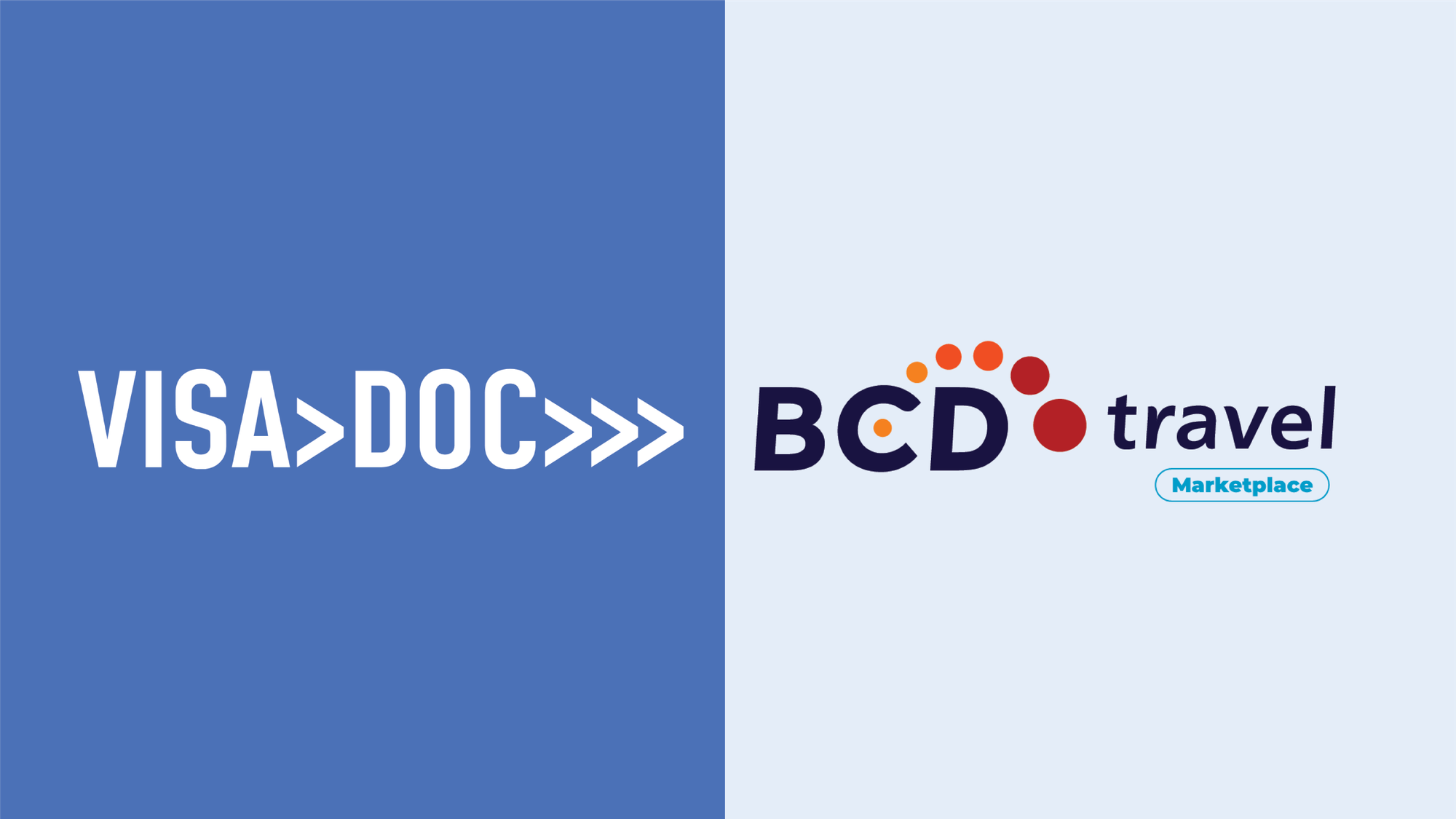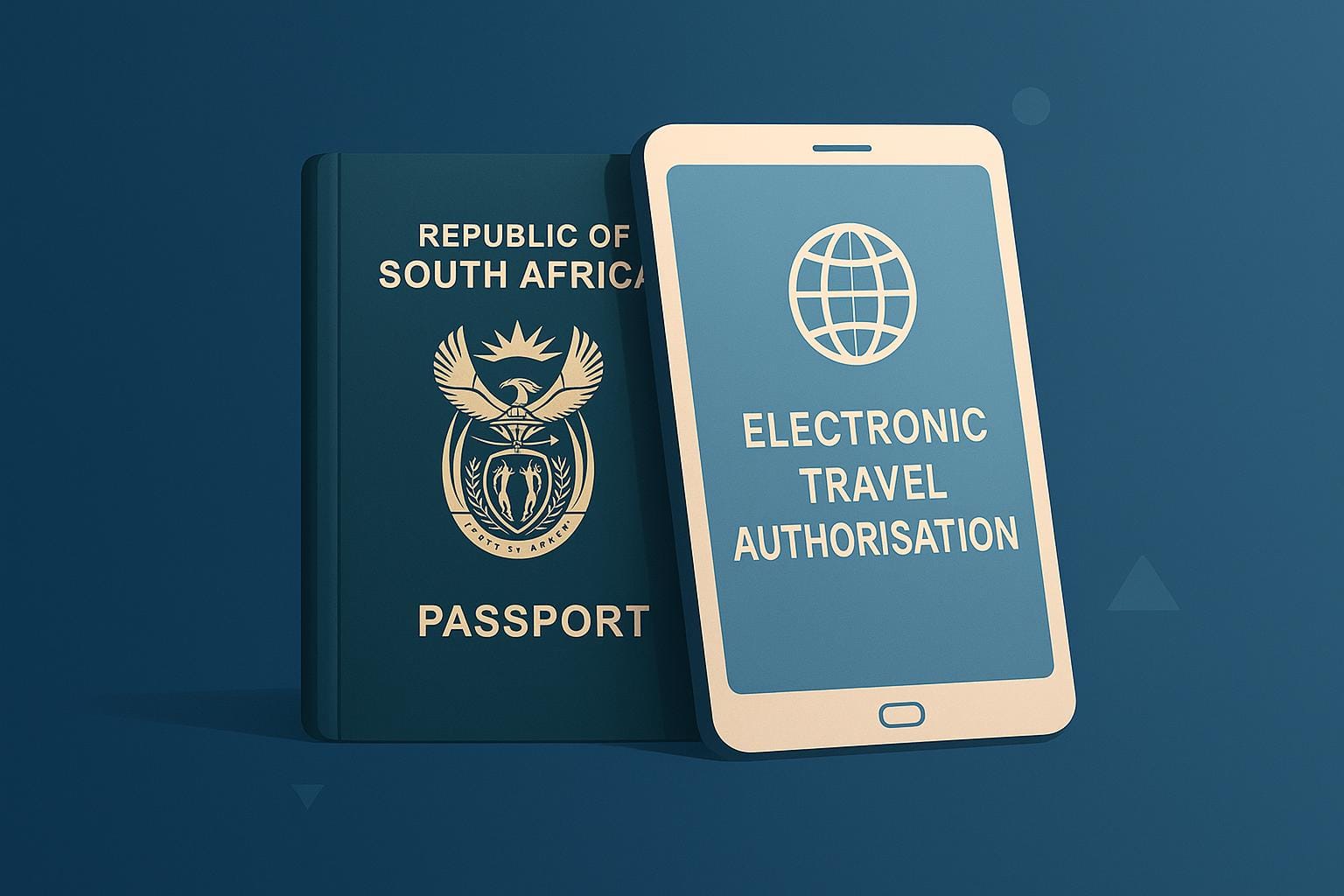Chile's Tech Business Visa (Visa Tech) allows UK companies to deploy software specialists quickly for time-sensitive projects. With approvals in as little as 15 working days, this visa is perfect for roles like software architects, DevOps engineers, and project managers. Here’s why it works:
- Fast processing: Entire process can be completed in around 30 days.
- Low cost: Visa fees range from £40 to £120, depending on nationality.
- Flexibility: Valid for 2 years with renewal options.
- Digital process: Apply online via Chile’s modern immigration system.
- Eligibility: Aimed at tech professionals with a job offer or contract from a Chilean company.
Chile’s tech market is booming, with its IT services market projected to grow by £4.4 billion by 2029. The country also boasts 91% internet penetration and Latin America’s fastest broadband speeds, making it ideal for software projects.
Want to know more about how to apply and manage the process? Read on for a step-by-step guide.
Chile's Tech Business Visa: Features and Benefits
Chile as a Growing Tech Hub in 2025
Chile is quickly emerging as a hotspot for global tech companies. Between 2025 and 2029, its IT market is projected to grow by £4.4 billion, with an annual growth rate of 10.2%. This growth underscores Chile's dedication to advancing digital innovation and transformation.
The country’s digital infrastructure is a key driver of this progress. With 91% internet penetration, the highest in Latin America, Chile provides the reliable connectivity essential for large-scale software projects. As of 2022, 86% of public services were available online, with plans to reach 95% by 2025 and full digitalisation by 2035.
Chile is also making waves as a nearshore development hub, thanks to its strategic location, competitive costs, and highly skilled workforce. Success stories like NotCo, a food tech company valued at £1.2 billion in 2021, and Cornershop, which Uber acquired for £363 million, highlight the innovative energy driving Chile's tech ecosystem. The fintech sector reflects this momentum, with 348 active startups in 2024, a 16% increase from the previous year. Meanwhile, the Internet of Things (IoT) market is expected to hit £950 million by 2025, presenting exciting opportunities for connected device projects.
This thriving tech environment provides a solid foundation for the adoption of Chile's Visa Tech programme.
Tech Business Visa Features
Chile's Tech Business Visa, known as Visa Tech, is designed to simplify the immigration process for professionals in science, technology, and innovation. It offers temporary, contract-based, and permanent residency options for workers sponsored by approved entities like InvestChile or the Undersecretariat of Economy.
The sponsorship process depends on whether the company has a local presence in Chile. Companies without a local entity must obtain an invitation letter from InvestChile, while those already operating in Chile require sponsorship from the Undersecretariat of Economy. In both scenarios, a certificate of sponsorship and a work contract (minimum three months with specific clauses) are essential.
The visa approval process is notably efficient, with decisions made in as little as 15 working days.
These streamlined features make Visa Tech particularly attractive for tech professionals and companies alike.
Benefits for Software Implementation Teams
The Tech Business Visa offers significant advantages for software implementation teams, especially those working under tight deadlines. Traditional visa processes can take months, risking delays to critical project timelines. In contrast, Visa Tech's expedited approvals help teams stay on track and deliver on client commitments.
Its competitive costs enable companies to deploy multiple team members at once, which is crucial for complex projects requiring a variety of technical skills. The mostly online application process, supported by Chile’s advanced digital immigration system, also reduces administrative burdens for HR teams managing multiple employee deployments.
Flexibility is another standout feature. Professionals can switch employers without jeopardising their visa status, a major benefit for organisations juggling multiple clients in Chile.
Additionally, Visa Tech helps bridge local skills gaps by allowing companies to hire foreign specialists in tech services that are hard to find locally. This approach not only strengthens project teams but also supports broader expansion efforts in Chile's dynamic tech market.
30-Day Visa Application Process
The Tech Business Visa process is designed to be straightforward and primarily digital, helping to ensure quick approvals when all steps are followed accurately. Here's a breakdown to help avoid unnecessary delays.
Eligibility and Required Documents
This visa programme is aimed at tech professionals, technicians, and founders of innovative ventures. It’s available to companies already operating in Chile or those planning to set up operations there.
For companies based outside Chile, sponsorship is required. This involves securing an invitation and a certificate from InvestChile.
Key documents you’ll need include:
- A valid passport
- A job offer from a registered Chilean company
- An employment contract lasting at least three months
- A Certificate of Sponsorship and a Letter of Invitation from the Chilean company
To avoid delays, ensure all documents are translated into Spanish and certified in advance. Additionally, employment contracts must comply with Chilean labour laws, so consulting legal experts familiar with local regulations is a smart move. Proper preparation is critical to keeping the visa process within the promised 30-day timeframe.
For software implementation teams, the three-month minimum contract requirement often aligns well with typical project timelines. However, if your project is shorter, you may need to structure contracts strategically to meet this requirement while maintaining flexibility.
Digital Application Process
Chile has transitioned to a primarily digital immigration system, making it easier to apply for work permits and visas online. The process involves submitting your application to the Chilean Department of Immigration, uploading required documents (like your employment contract and ID), and paying the processing fee. For Tech Business Visas, processing typically takes 15–20 days.
| Step | Description |
|---|---|
| 1 | Submit your application online to the Chilean Department of Immigration |
| 2 | Upload necessary documents (e.g., contract, ID) |
| 3 | Pay the processing fee |
| 4 | Wait for approval (15–20 days for the Tech Business Visa) |
| 5 | Receive your work permit upon approval |
To ensure a smooth process, gather all required documents before starting. Begin the application early, and if you’re unsure about specific requirements, reach out to your local Chilean embassy or consulate. For HR teams handling multiple applications, it’s wise to begin at least 30 days before the intended travel date to account for processing times and potential delays. The digital system also integrates well with automated HR workflows, making it easier to manage applications at scale.
Post-Approval Steps
Once your visa is approved, you’ll have 30 days to complete the registration process with local Chilean authorities and obtain your Chilean ID card.
The first step is registering with the Policía de Investigaciones (PDI). You’ll need to visit their office with your approved visa, passport, and any additional forms they require. This step is essential for working legally in Chile and accessing local services like banking and healthcare.
It’s crucial to plan your arrival in Chile around these registration requirements. Since the registration process can take 15–20 days, coordinate your travel and project timelines to ensure there’s enough time to meet the 30-day post-approval deadline. This way, your team can focus on starting work immediately, rather than dealing with administrative tasks during critical project days.
HR Team Visa Management Practices
Efficiently managing Chilean visa applications for software implementation teams requires a precise and organised approach. With 88% of organisations still relying on manual methods for tasks like onboarding, there’s a clear opportunity to improve how international mobility is handled. A centralised and automated system for managing documents can make compliance smoother and workflows more efficient.
Document Management Systems
A centralised repository for visa-related documents is essential to avoid delays and maintain consistency. Relying on email threads or shared folders can lead to missed deadlines, especially with Chile’s strict legal requirements. A well-structured system should track each applicant’s progress, store certified translations, and manage version-controlled employment contracts to prevent setbacks.
For instance, VisaDoc’s platform tackles these challenges by automating documentation workflows and consolidating all visa-related materials in one place. It can generate official documents, collect e-signed forms, and manage employee data while ensuring compliance with both Chilean and UK regulations. This setup helps eliminate issues like missing paperwork or outdated translations, which could jeopardise the 30-day processing timeline. Additionally, using pre-approved templates for employment contracts that align with Chilean labour laws further simplifies the process.
Chilean and UK Regulation Compliance
Secure document management makes it easier to meet legal requirements in both Chile and the UK. Understanding these regulations is critical to avoiding expensive errors. For example, Chile’s standard VAT rate is 19%, and foreign companies operating there must follow the same rules as local businesses. HR teams should collaborate with immigration specialists to ensure the correct permits are secured, even for short-term business visits, to avoid penalties.
Visa fees typically range from £50 to £150, and the Tech Business Visa’s 30-day option is particularly useful for projects that are time-sensitive. UK companies should also consult professionals about potential tax implications when employees temporarily work in Chile.
Visa Workflow Automation Tools
Automation tools can be game-changing for streamlining visa processes. Gartner predicts that 70% of companies will adopt process automation by 2025, and early adopters can gain a significant advantage in managing international talent mobility.
VisaDoc’s automation features include sending reminders for document submissions, tracking application statuses, and offering real-time updates - all invaluable for teams working under tight deadlines. Automated onboarding can reduce processing times from several days to just one. Moreover, its seamless integration with existing HR and travel booking systems ensures that travel plans align with visa approvals and post-arrival requirements, keeping everything on track for smooth project execution.
Chile's Digital Immigration System
Chile has emerged as a trailblazer in digital immigration within Latin America, revolutionising how international tech teams can access the country for business purposes. By overhauling its immigration processes, the Chilean Immigration Department has created an efficient digital system that is particularly useful for software implementation teams working under tight deadlines. This transformation not only speeds up visa processing but also aligns seamlessly with broader automation strategies.
Digital System Benefits
Chile has replaced its traditional paper-based immigration processes with a fully automated online system. As the first country in Latin America to introduce electronic visa management through a dedicated web portal, Chile has fundamentally changed how business visas are handled.
The results are impressive. According to the Head of Digitisation:
"Today, the processing of a stamped visa is completed in two minutes on our website. That used to take two months".
This transformation, built on Microsoft Azure infrastructure, allows the Immigration Department to handle high volumes of applications efficiently. The portal sees over 45,000 daily visits and processes more than 2 million applications annually. For software implementation teams, this means visa approvals can align with project schedules rather than delaying them.
Automation plays a key role in these improvements. Currently, 35% of transactions are fully automatic, with plans to increase this to 80% in the near future. This shift reduces manual interventions, speeding up routine visa processes and freeing resources for more complex cases.
The system also eliminates the need for in-person visits to immigration offices. Tech teams can manage the entire visa process remotely from their UK offices, receiving automated updates in real time. This transparency allows HR teams to track applications and adjust travel plans easily, enabling project managers to coordinate team deployments with greater precision.
These advancements not only simplify visa processing but also integrate smoothly into corporate workflows.
Corporate System Integration
Chile’s digital immigration platform offers UK companies significant opportunities to integrate their systems with Chilean immigration services, streamlining international mobility. Powered by Azure App Service, the platform provides a secure and reliable infrastructure. Matías Améstica, Head of Digitisation and Modernisation Advisor at the Immigration Department, explains:
"For us as an institution, the number of documents that come through digitally is important. Digital document management requires robust security and backup, and the fact that we can re-encapsulate those documents with Azure tools gives us security, gives us backup. And we can easily access the platform."
This robust infrastructure ensures that corporate systems can connect with Chile’s immigration services without concerns about downtime or data breaches. For software implementation teams, this means visa processing can proceed smoothly without technical disruptions.
The platform’s capabilities extend to integration with corporate HR and travel systems. These integrations ensure visa approvals are synchronised with project milestones, streamlining planning and execution. Additionally, the system can automatically monitor visa statuses, flagging potential compliance issues before they impact project delivery.
Real-time data sharing further simplifies administrative tasks. HR teams can maintain up-to-date records on employee locations and visa statuses across corporate platforms, ensuring payroll systems, insurance providers, and project management tools reflect accurate deployment data. This reduces administrative overhead while minimising compliance risks.
For companies managing multiple projects in Chile, the integrated system provides a centralised view of all visa applications and approvals. This visibility helps resource planning teams optimise deployments and identify cost-saving opportunities, such as coordinated travel arrangements, making the process more efficient and cost-effective.
Conclusion
Chile's Tech Business Visa offers UK software teams a fast-track solution for expanding into Latin America, with approvals possible in as little as 15 working days. This ensures that tight project deadlines can be met without unnecessary delays.
On top of that, the introduction of an automated digital system has significantly reduced processing times, helping teams stay on schedule. It's a step forward that aligns with Chile's broader ambition to transition from a resource-driven economy to one centred on innovation and knowledge. Since 2010, programmes like Startup Chile have supported over 1,300 startups, contributing to a thriving tech ecosystem.
The integration of digital tools with corporate HR systems has also simplified the visa process. This not only cuts costs and minimises compliance risks but also aligns visa applications with project timelines, making team deployments smoother and more efficient. For HR teams tasked with managing international mobility, Chile's digital immigration platform sets a strong example of how technology can streamline visa management.
FAQs
What does a UK company need to do to secure a Tech Business Visa for their software team travelling to Chile?
Securing a Tech Business Visa for a Software Implementation Team in Chile
If you're a UK company looking to send a software implementation team to Chile, there are a few key steps to ensure the process goes smoothly:
-
Job Offer and Required Documents: Each team member must have a valid job offer from a Chilean company. They'll also need to provide several important documents, including:
- A passport with at least six months of validity.
- A notarised employment contract.
- Proof of qualifications.
- A police clearance certificate.
- A medical certificate.
- Formal Letter to the Consulate: The UK company must submit a formal letter to the Chilean Consulate no later than five working days before the team's departure. This letter should clearly explain the purpose of the visit, the nature of the work to be undertaken, travel dates, and detailed personal information for each team member, including their passport details.
- Work Permit: After the team arrives in Chile, it’s the responsibility of the Chilean affiliate company to handle the necessary work permits.
By taking care of these steps ahead of time, UK companies can simplify the visa process and ensure they meet Chile's requirements for short-term tech assignments.
How does Chile's digital immigration system simplify visa applications for software professionals?
Chile has introduced a digital immigration system that simplifies the visa process for software professionals. By allowing applications to be submitted online, it cuts down processing times and ensures that work authorisation is granted as soon as applicants arrive in the country.
This system is tailored for tech specialists handling short-term projects, making it easier for businesses to meet tight deadlines and access opportunities in the Chilean market. It’s a practical option for software teams needing fast and dependable visa approvals.
How can companies ensure compliance with Chilean labour laws when sending tech professionals on a Tech Business Visa?
To navigate Chilean labour laws when deploying tech professionals under the Tech Business Visa, companies should take these essential steps:
- Draft a legally compliant employment contract: Create a contract that aligns with Chilean labour law, detailing job responsibilities, salary, and the duration of employment. This document must be notarised within Chile.
- Obtain a work permit: Apply for the required work permit, ensuring that the position cannot be filled by a local professional. This step is crucial for meeting legal obligations.
- Adhere to local employment standards: Guarantee that foreign workers are afforded the same rights as local employees. This includes fair pay, standard working hours, and compliance with health and safety regulations.
By addressing these requirements, companies can reduce legal complications and ensure a seamless transition for their tech teams operating in Chile.













